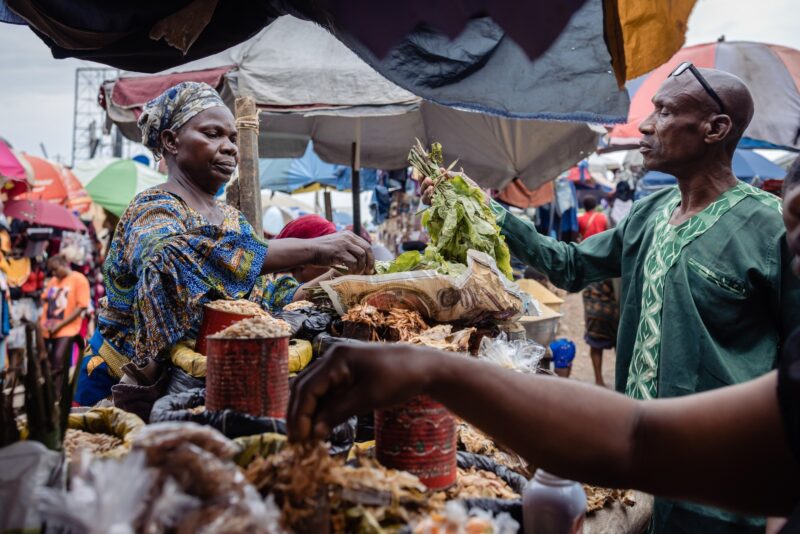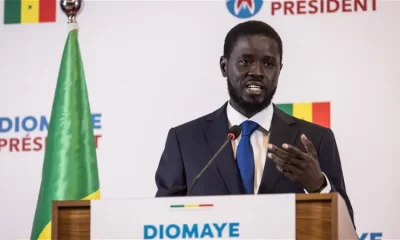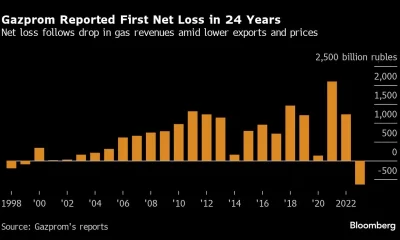National Issues
Without A Doubt, Surge In Prices Of Goods And Services In Nigeria Is One Too Many -By Isaac Asabor
On Thursday, the telcos, under the aegis of the Association of Licensed Telecom Companies of Nigeria and the Association of Telecom Companies of Nigeria, issued a joint statement asking the government to expedite the approval.

In as much as the reasons often adduce by manufacturers and service providers in Nigeria to justify rising prices and fees of goods and services can be said to be cogent, it does not remove the fact that it has become one too many, particularly as the unfair market situation appears as if consumers in Nigeria are unduly been exploited and extorted across markets in the country.
Given the foregoing view, it is not an exaggeration to opine that since the removal of fuel subsidies in Nigeria that it has effect on a significant aspect of the economy, and has led to a rise in the prices of goods and services. This is as the immediate effect of the subsidy removal has triggered a sharp increase in the prices virtually all brand of goods and services.
In fact, with higher fuel prices, the cost of transporting goods across the country has unprecedentedly increased since May 29, 2024 when President Bola Ahmed Tinubu being the day of his inauguration openly announced that “Subsidy is gone”. This, in turn, has since then led to higher prices for goods in the market as businesses sought to maintain their profit margins.
Without any iota of exaggeration, since then not a few industries have been relying on fuel for power generation due to inconsistent electricity supply. In fact, the increased cost of fuel meant higher operational costs for these businesses, which often resulted in price hikes for their products and services.
In a similar vein, the rise in fuel prices has contributed to the prevailing soaring inflation rate in the country which stood at 31.70% In February 2024, up from 29.90% in January 2024, marking an increase of 1.80%, thereby leading to increase in cost of living, even as it has put additional financial pressure on consumers, and thus reducing their purchasing power.
Expectedly, the increase in fuel prices has been leaving a cascading effect on the economy, affecting everything from the cost of food items to the price of services. Without a doubt, businesses that relied heavily on fuel for their operations are particularly been impacted, leading to widespread price increases.
Against the foregoing backdrop, it is not surprising that the removal of the subsidy has led to economic challenges such as a depreciated currency, which has further exacerbated the situation by making imports more expensive.
Without a doubt, it is germane to opine that while the removal of the fuel subsidy was intended to free up government resources for other sectors and reduce corruption associated with subsidy payments, the short-term impact on prices has been significant, causing hardship for many Nigerians.
As the populace continue to groan under the suffering caused by the removal of fuel subsidy, the recent increase in electricity tariffs in Nigeria is equally having a significant impact on them. It will be recalled that the Nigerian Electricity Regulatory Commission (NERC) recently approved a hike in electricity rates for consumers categorized in Bands, thereby compelling a wide spectrum of the population that are subscribed to the services of the 11 Electricity Distribution Companies (DisCos) to fall under Band A, which means customers under the Band are now paying N225 per kilowatt hour, up from the previous rate of N661. This increase is substantial and is expected to affect the customer population in the Nigerian Electricity Supply Industry (NESI), who reportedly consume around 40% of the nation’s power.
Without a doubt, this tariff hike is likely to have several consequences as the increased tariff will directly affect household budgets, particularly for those in urban areas who are already facing high living costs.
As gathered, over 65% of private businesses in Nigeria may be forced to close down due to the increased operational costs resulting from the tariff hike, even as the manufacturing sector could see a rise in production costs, which may lead to a decline in revenue and competitiveness.
Without any iota of exaggeration, there seems not to be an end in sight regarding the hardship occasioned by the increase electricity tariff coupled with the high costs of fuel as experts have postulated that to mitigate the impact, the government would need an estimated N3.2 trillion to subsidize electricity in 2024.
Paradoxically, the tariff increase is a response to the need for investment in the sector, but it poses a challenge for the economic stability of households and businesses, potentially affecting the overall economic growth of the country.
Irrespective of the fact that myriads of factors have combined to worsen the prevailing hardship across the country, not a few companies have increased the prices of their products.
For instance, the frequent increases in DSTV tariffs in Nigeria have been a source of frustration for many subscribers. Multichoice Nigeria, which operates DSTV, has cited several reasons for the tariff hikes.
The company has mentioned that the adjustments are due to the “rise in the cost of business operations”. This includes factors such as inflation, the cost of acquiring broadcasting rights, and maintaining the infrastructure needed to provide the service.
In fact, the latest increase, which is set to take effect from May 1, 2024, is the second in four months and the third within a year”. It reflects the challenging economic conditions, including currency devaluation and increased costs that businesses are facing in the country³.
However, subscribers have expressed their dissatisfaction with the increases, especially considering the economic hardship many are experiencing. Some have opted for alternatives like smart TVs and streaming services, which they find more cost-effective.
Multichoice has also been encouraged by customers to improve their services to justify the price increases, suggesting that if prices are to rise, the quality of service should rise correspondingly.
It is a complex issue that balances the operational costs for the company and the economic realities of its customers.
As if all the manufacturers and service providers in the country have ganged-up against consumers, telecommunications operators in the country including MTN Nigeria and Globacom have asked for Federal Government approval through the Nigerian Communications Commission (NCC) to raise their tariff.
The development came after foreign exchange losses and rising energy costs forced some of the operators to post losses last year. It will be recalled that the telcos’ proposal to raise their tariff came barely 24 hours after MultiChoice, raised its tariff. Several companies including brewing companies have also raised their prices in recent times.
On Thursday, the telcos, under the aegis of the Association of Licensed Telecom Companies of Nigeria and the Association of Telecom Companies of Nigeria, issued a joint statement asking the government to expedite the approval.
In fact, the recent surge in the prices of goods and services in Nigeria has reached a tipping point, reflecting the strain on the populace and the urgent need for sustainable economic strategies and transparent governance to alleviate the financial burden on its citizens. Without a doubt, the unprecedented surge in prices of goods and services across consumer markets in Nigeria been witnessed Nigeria by each passing day is one too many.




















